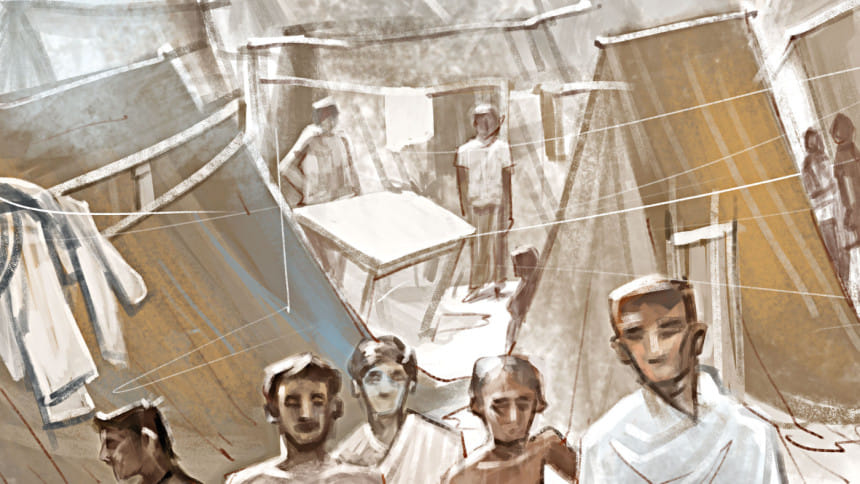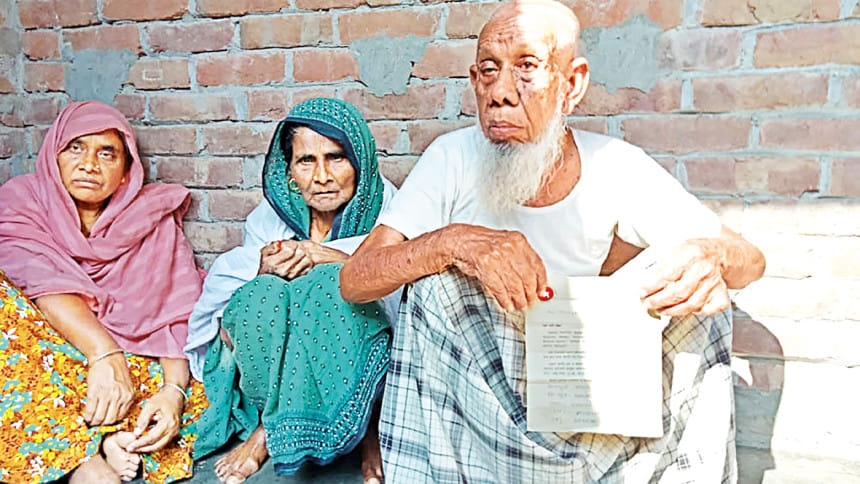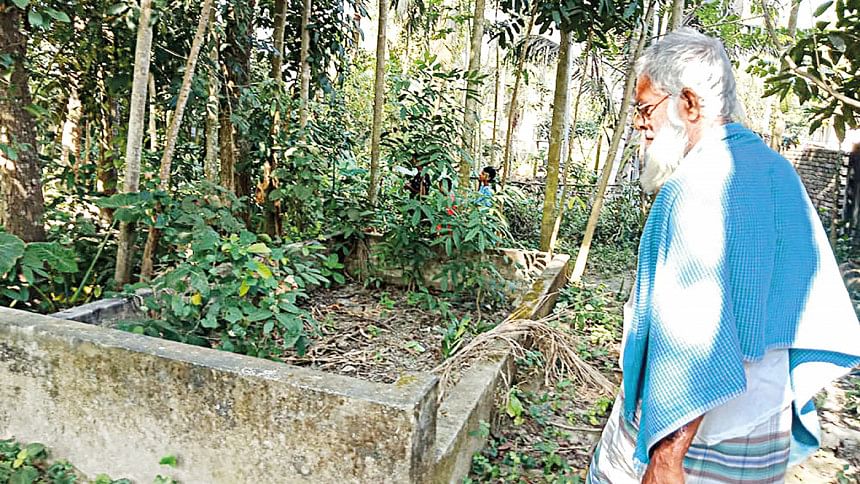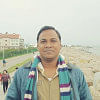When living is even more painful

April 23, 1971.
A sudden burst of gunshots broke the afternoon silence in the remote Baghoil village of Pabna. All the innocent villagers could do was scream and run to save their lives from the trigger-happy Pakistan military.
Amid the mayhem, Fazila Khatun rushed out of the house with her eight-month-old son held close to the chest and eight-year-old daughter beside her.

Hit by a bullet, her daughter collapsed on the ground and died on the spot. Her other daughter, aged about five, got shot in the leg while running towards her mother.
Her husband Abdul Kader was also bullet-hit and he lay in a pool of blood near the house, she said, recounting the horror of the massacre that killed at least 23 people and injured eight.
"My eldest daughter died in front of me and my husband and younger daughter suffered bullet injuries," Fazila Khatun told The Daily Star recently.
"I could not even cry for my eldest daughter then because I had to take care of my husband and younger daughter who were fighting for their lives."
The situation was so grave that nobody dared take them to a hospital.
"I bought Cibazol tablets from a village shop after everything calmed down, crushed those into powder and mixed it with coconut oil before using that ointment on wounds of my husband and daughter for days. And they recovered," she added.
Omar Ali, who was barely nine-month-old, miraculously survived the massacre but lost all of his five family members.
"The Pakistan army killed my father Ummed Mondol, mother Hawa Begum, sister Sakatun Khatun and brothers Shafikul Islam and Badam Mondol. They made me an orphan," he said.
A day labourer and now living in a nearby village, Omar said he came to know from the villagers that his mother died keeping him on her lap. "I was crying beside my mother's body when the locals rescued me."

Abdul Kader, a village elder now almost confined to bed with old-age complications, said they were not prepared for such an attack.
"We were busy with our day's work when the Pakistan army arrived. It was around 5:00 in the afternoon," Kader recalled.
He said the Pakistan army first called the villagers to gather, saying they would count the family members and nobody would be hurt.
"Those of us who complied were put in a line, and suddenly they started shooting," said Kader, who was shot below his hip.
The massacre of Baghoil village in Pakshey union might be a piece of history now, but for Kader and many others of the village, it remains an omnipresent nightmare.
"I still feel the pain from the injuries, but losing my daughter and many relatives is more painful," said Kader in a choked voice.
The village is known as Baghoil Shaheed Para -- the neighbourhood of martyrs. But, villagers said, those who were killed are yet to be listed as martyrs.

They also lamented that there have been little efforts from the government to protect the mass grave of the martyrs and recognise their family members.
"The village has changed a lot with the passage of time. Beautiful buildings replaced huts, concrete roads replaced earthen walkways, but the mass graveyard remains uncared for," said Eunus Ali, who lost his newly married wife Josna Khatun in the massacre.
Md Jahangir Alam, Muktijoddha Sangsad commander of Pakshey union, said it was one of those many places where massacres took place during the Liberation War but the martyrs of this village have not been recognised properly.
People of the area demand preserving the memories of the massacre for the future generation to know about it all.
Amirul Islam, a local schoolteacher, said most of the war victims have died by now. "We must take initiatives to protect the mass grave and document the testimonies of the war."

 For all latest news, follow The Daily Star's Google News channel.
For all latest news, follow The Daily Star's Google News channel. 



Comments